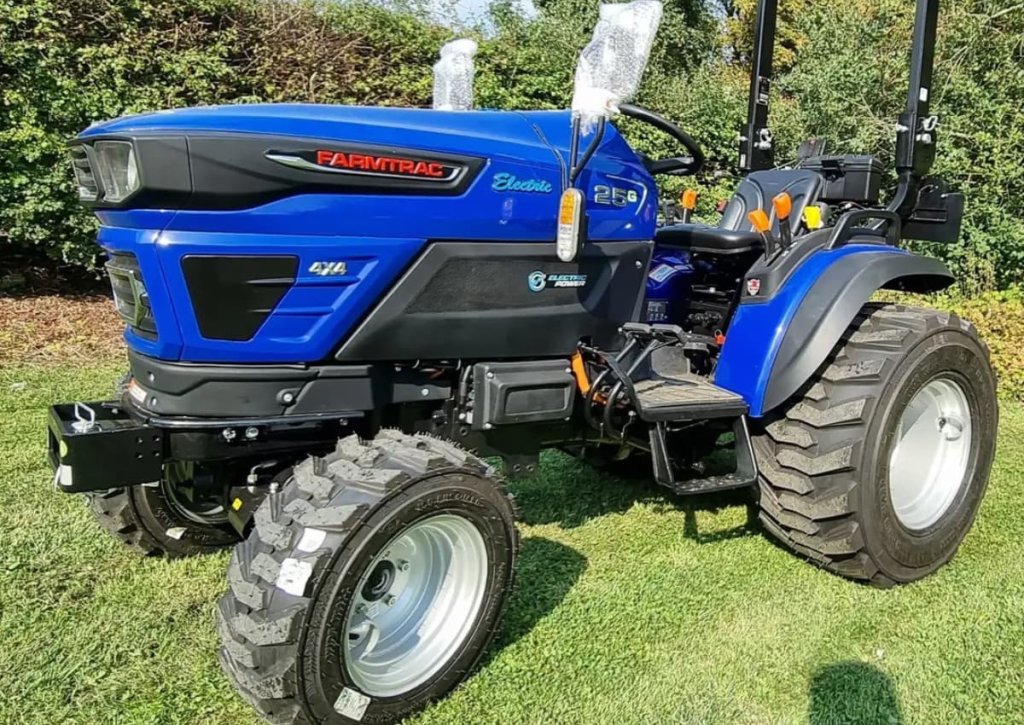The tractor has been an excellent farmer’s companion for many years, aiding in plowing, harvesting, spreading pesticides, and many other duties. As technology evolves, so does this crucial piece of farming equipment. Electric tractors are all the rage, and they help in effective yard drainage solutions and more. This makes us wonder: should the modern farmer buy into the trend?
Electrical vehicle technology is more than a fad, as many people are adopting green energy. The electric tractor concept, while new, is a gateway to numerous opportunities for the new-age farmer, as we will explore in this discussion.
Introduction To Electric Tractors
As their name hints, electric tractors run on electricity instead of fossil fuel, like conventional tractors. They run on electric motors powered by battery packs. Like other electric vehicles, you should regularly charge the batteries.
E-tractors are the future, especially if you are into organic farming; plus, they have several benefits that we will look at.
Electric and hybrid tractors are different, though their concept is almost similar. E-tractors solely rely on electric motors, while hybrids run on electric motors and combustion engines, mostly diesel.
Hybrid tractors are popular due to their flexibility, which can translate to optimized performance.
Why Farmers Should Embrace E-Tractors
Onto the main part of our discussion, let us look at why electric tractors are the way to go.
Effortless Maintenance
While e-tractors have fewer moving parts than traditional tractors, making maintenance a walk in the park, they contrast significantly with the common issues faced when troubleshooting a sputtering push mower. You don’t have to stress about repairs, especially if you get your equipment from reputable companies.
The primary maintenance you must adhere to is charging the batteries and regularly oiling moving parts. You bid goodbye to demanding issues like cleaning and replacing fuel system parts. As Yard Floor explains, fuel systems in traditional tractors are prone to several problems.
Cleanliness
Most agricultural equipment leaves a large carbon footprint due to their emissions. This is not good for the environment, as it depreciates due to pollution. This is not the case with e-tractors, as they rely on electricity, which is cleaner than diesel and gasoline.
The emissions are relatively low, meaning the resultant carbon footprint is smaller than what comes from traditional tractors. As mentioned earlier, electrical vehicle technology is perfect for farmers who are into organic farming and are interested in using green energy.
Lower Operating Costs
Tractors and most agricultural equipment have high operating costs, discouraging many farmers as they eat into their profit margins. Conventional tractors require plenty of fuel, which is expensive, plus their engines require constant attention.
While electric tractors also attract maintenance costs, they are not as expensive. Instead of fuel, you charge the equipment, and you are good to go. Electricity is cheaper than diesel or gasoline, especially if you rely on renewable energy in your farm.
Quiet Operation
Tractors, being heavy vehicles, emit too much noise, which can be a nuisance to the operator or neighbors. An advantage of electric farm machinery is noiseless operation. You might catch the standard sound of the running electric engine, but it is very subdued and manageable, unlike that of conventional diesel engines.
Efficiency
Electric tractors are efficient and will do an excellent job as farming companions. Their systems deliver the maximum and instant torque required for the daunting tasks on the farm, particularly towing and plowing.
Furthermore, the regenerative braking concept works in the favor of such vehicles. The associated systems harness energy when the tractor brakes or decelerates and convert it into electricity.
Government Incentives
Farming is financially demanding, and a little help goes a long way in covering various bills. The good news is that the government and other bodies incentivize farmers who turn to all-electric equipment. Such programs can cover 70 to 100% of your agricultural project’s costs, which is more than enough relief.
Excellent Operator Experience
Tractors are not the most comfortable vehicles, and the operators may suffer from fatigue and strain after working with them. E-tractors are modern, featuring updates like cozy seats and an ergonomic design. They also drive smoothly, which improves the overall operator experience.
These new-age tractors are safe and compatible with modern farming accessories.
The Argument Against Electric Tractors
While electric tractors present numerous benefits to the farmer, certain drawbacks concern those who want to embrace them. The main issue about the e-tractors is their steep price tag.
A decent tractor capable of handling heavy farmwork will require you to break the bank. Despite the discouraging purchase price, they offer long-term savings, which come from reduced operation costs and durable components.
Talking about components, many farmers feel that replacement parts for e-tractors are hard to come by. This was true a few decades back, but presently, several players in the electric tractor scene offer spares.
Additionally, you don’t have to physically visit the stores that deal in the components, as you can order them online and have them delivered to your location.
Wrapping Up
Electric tractors are gradually becoming a mainstay in the agricultural sector, with several farmers adopting them due to their numerous benefits. They are cheaper to maintain, perform impressively, and open doors for incentives, among other perks.
The main hurdle you may encounter when going electric is the initial purchase cost, which is justifiable when considering the long-term savings. You can start by testing hybrid tractors to get a hint of e-tractor performance before going fully electric and reducing your carbon footprint.

